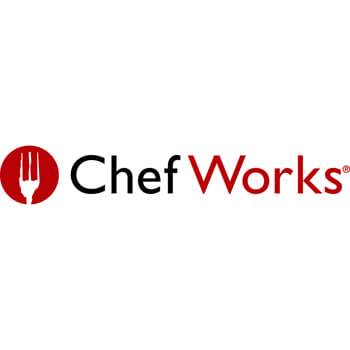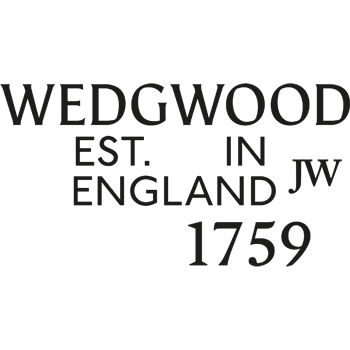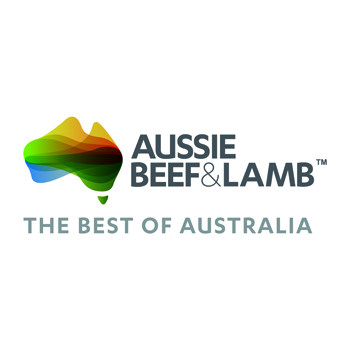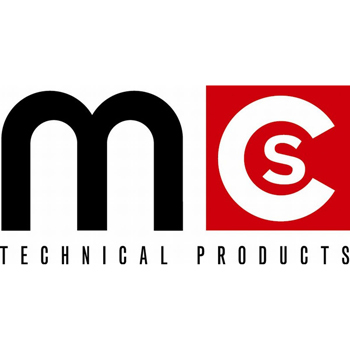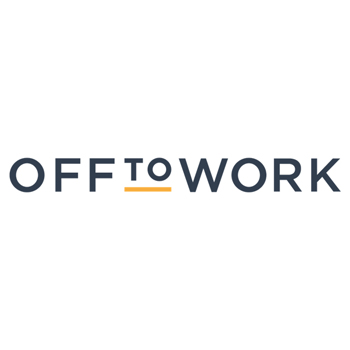The Future of Pub Kitchens Seminar in Partnership with Rational was a Great Success
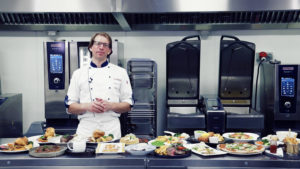
On Monday (20 September), The Chefs’ Forum in partnership with RATIONAL, presented a ground-breaking ‘The Future of Pub Kitchens Seminar’ to explore the imminent challenges, alongside the short and long-term opportunities, facing the sector. The free-to-attend seminar saw a great number of multi-site operators, independent business, branded operators, kitchen planners and designers come together to discuss the topics and challenges affecting them at present and some of the innovative ways they are planning to ensure a sustainable and profitable future.
The event successfully got to the heart of the matter, with panellists giving fantastic insight and anecdotal examples of how they see the future panning out, addressing the challenges and opportunities currently facing the pub sector.
 Hosted by The Chefs’ Forum’s Director of Education, Neil Rippington, the Seminar explored current topics across variety of topics in the delivery of a food offer in the pub sector:
Hosted by The Chefs’ Forum’s Director of Education, Neil Rippington, the Seminar explored current topics across variety of topics in the delivery of a food offer in the pub sector:
Sales Director, Mike Williams, at RATIONAL UK opened the seminar by talking the delegates through the heavily publicised Natasha’s law which comes into effect this October. Tim Foster, partner, The Yummy Pub Company, discussed the challenges of a frequently changing supply and the importance of ensuring that any replacement products were analysed carefully to ensure that allergen checks are completed for every product going on the menu. They also explained the need to prepare immediately and get to grips with correctly labelling readymade foods as used in the production of multi component dishes. Mike and Tim also discussed Owen’s Law, which is currently the subject of a government petition calling for restaurants to put all information about allergens in their food on the face of their menu, so customers have full visibility on what they are ordering.
 Mike said:
Mike said:
“Owen’s Law aims to strengthen the food regulations in relation to allergenic information on menus in restaurants. Following a visit to a restaurant, Owen Carey, who had several allergies, including dairy, had eaten a grilled chicken breast without the bun, but was still affected as the chicken was marinated in buttermilk, to which he was highly allergic. The push for Owen’s Law is to supplement Natasha’s Law, becoming legislation in October, to ensure that pre-prepared and packaged foods are clearly labelled for allergenic ingredients.”
The delegates then got to see first-hand the connected cooking technology offered by Rational to help them cook their menus quickly and efficiently, lessening the need for a labour-intensive kitchen in the grips of a global chef shortage as industry recovers from being closed due to the pandemic.
The next topic examined environmental issues and sustainability. All participants shared examples of the key challenges facing the sector at present in terms of the environment and sustainability, including issues including food waste, single use plastics, reducing carbon emissions and food provenance.
The panel swapped tips on stock utilisation, using seasonal varieties and innovative ideas to ensure that food waste is kept to a minimum. Ideas were also shared to illustrate how the utilisation of ingredients can be maximised in creative ways, including the use of ingredients across menus but featured in a variety of formats to maintain originality.
 Ross Pike, Chef Director, Oakman Inns discussed the importance of waste management and the utilisation of food across his operations, providing great examples of what can be done to achieve this.
Ross Pike, Chef Director, Oakman Inns discussed the importance of waste management and the utilisation of food across his operations, providing great examples of what can be done to achieve this.
Ross said:
“It’s a very important step. My experience in Italy included working in kitchens with clear bin-liners so that all waste was visible. I have incorporated this practice to Oakman Inns. By having clear bin-liners on every section, it makes the chefs realise how much foodstuff they are throwing away and this can be challenged. I then turn this around and have little competitions in the kitchen to explore how these offcuts, which are totally safe to eat, can be utilized. It’s actually helped to create some of our best dishes.”
Topic three discussed the highly topical and essential issue around staffing. With widespread coverage referring to the problems the industry is facing in terms of staffing, the panel approached the subject analysing what can be done in the longer-term to help to overcome the issue.
 Mike and Jacqui Downs, Owners of The Volunteer Inn in Ottery St Mary, discussed how the use of technology has improved the working environment and experience for their staff. Mike took us, via video, to the Volunteer Inn and a demonstration as to how working with the iCombi Pro and the iVario Pro has led to a much-increased level of productivity, efficiency and consistency in food service operations, whist improving the ergonomics of the working environment for staff.
Mike and Jacqui Downs, Owners of The Volunteer Inn in Ottery St Mary, discussed how the use of technology has improved the working environment and experience for their staff. Mike took us, via video, to the Volunteer Inn and a demonstration as to how working with the iCombi Pro and the iVario Pro has led to a much-increased level of productivity, efficiency and consistency in food service operations, whist improving the ergonomics of the working environment for staff.
Mike said:
“I was looking at chef welfare and the sustainability of the job. As restrictions from the pandemic were removed, it was forecast that it would be like Christmas every week, so I had to look at the situation and the technology available. We have installed two i-combi ovens and the iVario pro. This has enabled us to more than double our production, whilst still only having one chef on shift. The technology has definitely aided us in our recovery from the pandemic.”
Trends and eating patterns formed the content for topic four. The panel considered the promotion of healthy eating options on menus and how pub caterers can influence customers to select and consume more healthy options, supporting an increase in consumers’ consumption of fruit and vegetables. Mike Williams discussed how the use of the iCombi Pro and iVario Pro can maintain the nutritional values in foods by highly controlled cooking methods.
Mike commented:
“As healthy eating is becoming more applicable to most people, consumers are more likely to choose options that are pan-fried rather than deep-fried, for example. Our equipment, on the right settings, can produce unique results with great textures. Just-in-time cooking also helps retain nutrients and the colour in fresh vegetables, making them more nutritious and appealing to eat. The equipment also assists in the management of production volumes, preventing the need for large batches of vegetables having to be cooked, held or reheated for service.”
In terms of trends, the topic of dark/ghost kitchens was explored as a growing trend across many operators. Tim shared his views on the increase of the dark kitchen model and some of the benefits this can bring to operations who plan to utilise this type of operation
 The fifth topic explored the use of technology in the planning of tomorrow’s pub kitchen. The panel debated the benefits of ‘Connected Cooking’ and how this technology can assist in the management of cooking and systems. Shanti Bhushan, Executive Chef, Brigadiers, London, discussed how he maximises the efficiency of operations in his kitchen, providing some great menu examples in the production of excellent, authentic Indian inspired food, with a significant reduction in the use of equipment, time and labour.
The fifth topic explored the use of technology in the planning of tomorrow’s pub kitchen. The panel debated the benefits of ‘Connected Cooking’ and how this technology can assist in the management of cooking and systems. Shanti Bhushan, Executive Chef, Brigadiers, London, discussed how he maximises the efficiency of operations in his kitchen, providing some great menu examples in the production of excellent, authentic Indian inspired food, with a significant reduction in the use of equipment, time and labour.
Shanti said:
“I think the most amazing part of this equipment in the control. For example, in the production of a classic beef biryani, we use beef shin. This, traditionally, would take around 4 to 5 hours of slow braising. The whole process now is performed overnight at 65°C, braised with the spices, producing a more tender, delicate and flavoured dish. The rice is also cooked and layered using the Rational equipment and the consistency is excellent. It is such a time-saver.”
With staffing such huge problem currently, delegates were delighted to learn that they could introduce technology to their kitchens to support staff and reduce tasks requiring significant laborious input . The equipment can be managed remotely via an app on a mobile phone, an ipad or a PC. Shanti’s example demonstrated how the iCombi Pro can work safely from the control of an app, even when he is not at the restaurant.
The final topic of the session explored the road to recovery and how an integration with education can play a part in bridging the gap between education and industry. The Chefs’ Forum is all about bridging the gap between education and industry, so it was fantastic to hear from the panellists on how well they consider their kitchen teams, treating them with respect and considering their experience at work to make them want to stay for the long haul.
All the panellists agreed that engaging with the next generation is a priority and there were some great examples of interaction with colleges through the Chef’s Forum Academies. This included masterclasses covering all things food and drink, including cocktail making masterclasses from the team at the Yummy Pub Company and guest-chef masterclasses from chefs at Oakman Inns. Mike Downs also discussed the importance of social media and how the development of an online community has supported the journey and development at The Volunteer Inn.
At the end of the event, Neil Rippington said:
“The Chefs’ Forum’s Future of Pub Kitchens Seminar examined a number of key topics across a wide-ranging analysis of the Pub sector and the challenges it faces.
Today, we all agreed that there must be a new way of thinking in terms of waste reduction, sustainability and technology, whilst at the same time as developing staff and looking at innovative ways to attract new staff to the sector and retain them in the long-term. I am delighted with the insight gleaned from today’s event and look forward to staging a follow-up event for the pub sector very soon.”
This was the fourth in a series of sector specific seminars in association with The Chefs’ Forum to gain valuable market insight to fine-tune RATIONAL’s approach to servicing stakeholders, tailor-made to their individual requirements.


